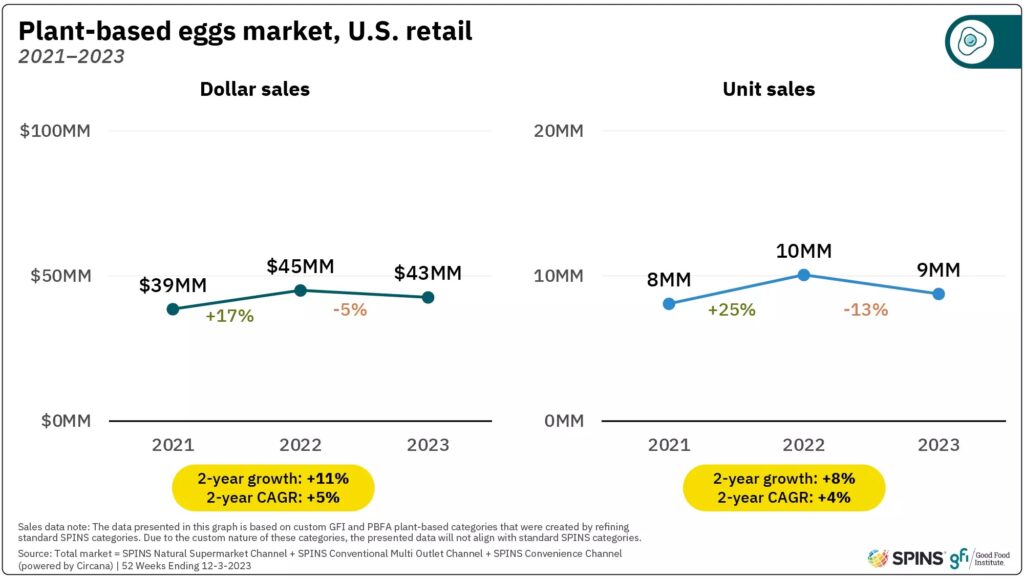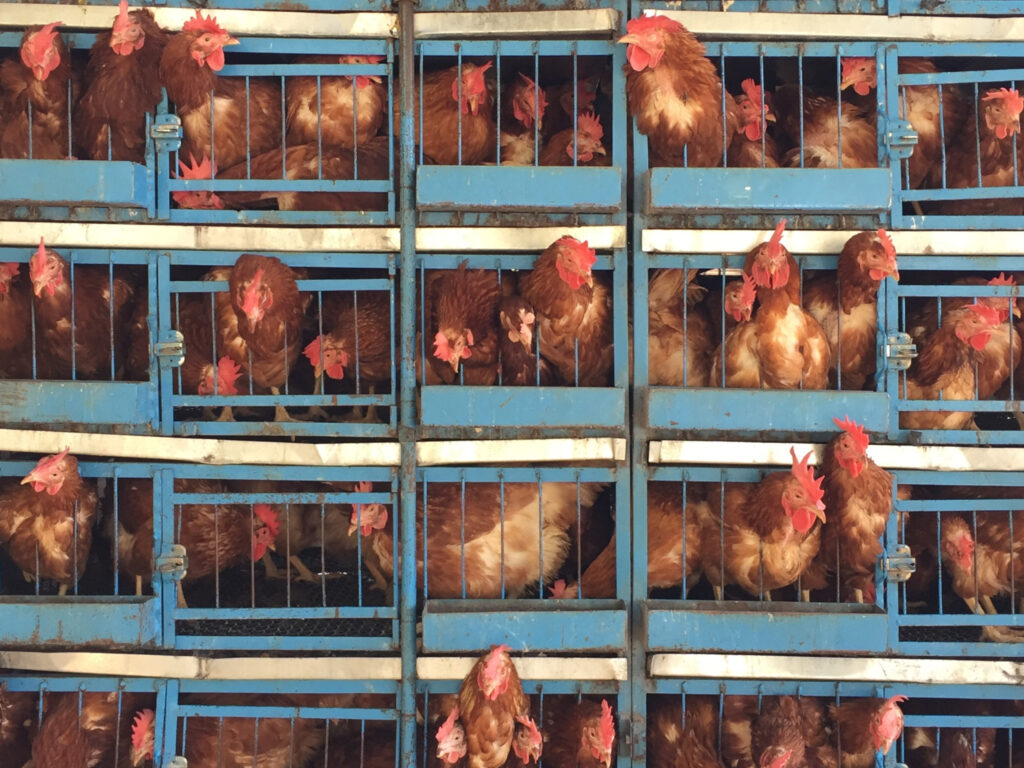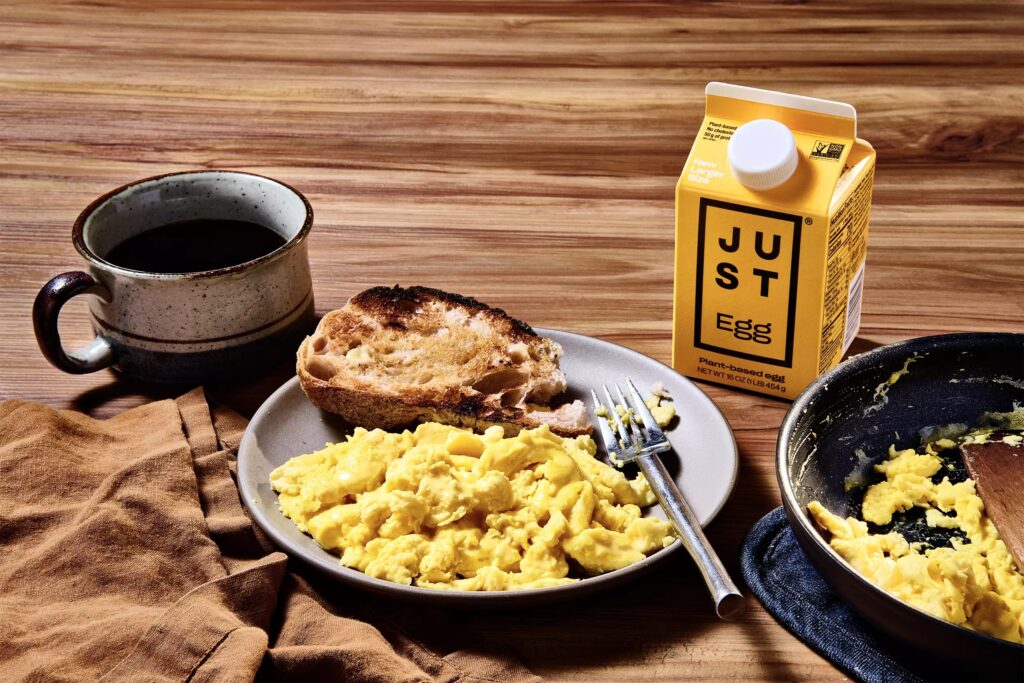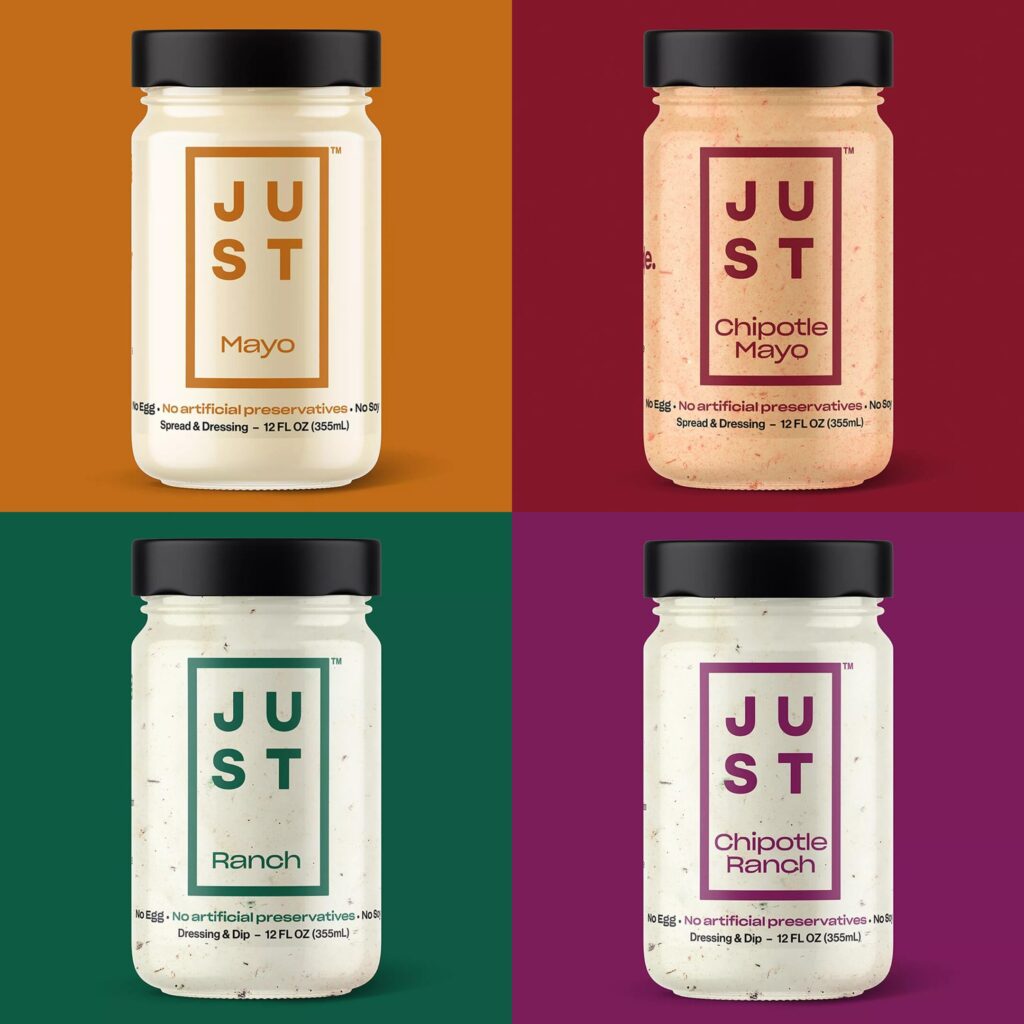Trend Report: As Egg Prices Skyrocket, Dozens of Startups Are Hatching Chicken-Free Solutions
8 Mins Read
You know things are serious when Waffle House starts upcharging you for every egg.
The all-day breakfast chain serves 272 million eggs every year; it has now added a temporary 50-cent per-egg surcharge on orders due to the bird-flu-induced national shortage.
The current wave of avian flu – in its third year now – killed more than 40 million chickens in the US in 2024, causing major supply problems and subsequently driving up prices. The peak may have been January 2023, when a dozen eggs set you back $4.82 in the supermarket – though current costs are agonisingly close.
The crisis is showing no signs of abatement – the number of chickens affected by the flu per month tripled in December, and increased further last month. That leaves an egg-shaped hole in grocery baskets and restaurant orders.
This is an opportunity made for sustainable egg protein startups, which are making egg alternatives with plant-based ingredients, as well as recombinant egg proteins from fermentation.





Several startups offer liquid eggs or ready-to-eat versions of classic egg dishes that can be used as a 1:1 swap, and these tend to target CPG consumers who use eggs as part of their meals at home.
Perhaps the largest name is Eat Just, whose Just Egg comes in pourable and toaster formats and uses mung bean as a base – it can be used to make scrambles, omelettes and even baked goods, though it does come with a steep price tag.
As of late 2023, Eat Just indicated that its egg alternative captured 99% of the US vegan egg market and that by February 2024 it had sold the equivalent of half a billion eggs. The startup faces competition from brands like Zero Egg and Simply Eggless in the US, and international players such as Crack’d, Oggs, Perfeggt and Vegge.

Others, meanwhile, are moving past pourable formats to offer more novel options. Yo Egg, for example, makes vegan sunny-side-up and poached eggs with runny yolks, which can be boiled or fried. BeLeaf also makes hen-free fried eggs. And under it WunderEggs brand, Crafty Counter turns almonds and cashews into egg patties, boiled eggs, and deviled eggs.
In Singapore, Float Foods has developed a range of plant-based eggs for different applications, including poached, yolks, and XL omelette wraps, under its OnlyEg brand. Poached eggs are also a feature of Germany’s Neggst, as are sunny-side-ups, boiled eggs, and patties.

French brand Le Papondu, meanwhile, is looking to take things a step further. While it has gone to market with egg patties, it’s working on a crackable whole egg in the background.
Most of these pre-prepared or pourable egg alternatives don’t actually undercut the cost of eggs, contributing to the price gap between plant-based and conventional versions. This is where powdered alternatives come in.
It’s the original egg substitute format and it continues to enjoy popularity, as illustrated by the number of brands in this space. As dried products that shoppers add water to, they are much more wallet-friendly, they can be packaged more minimally and they don’t require refrigerated transportation.

Powdered vegan eggs are an ideal alternative for cash-strapped consumers in the egg-flation era. Brands like Peggs, Acremade, Orgran, Bob’s Red Mill, Vegg, and Sol Natural are filling this gap.
Some companies are targeting the bakery and CPG sectors with alternatives that perform like eggs in different products—estimates suggest that up to 40% of all eggs are used as ingredients in foodservice and food manufacturing.
For example, Follow Your Heart, Fabalish, and Eat Just all make egg-free, plant-based mayonnaise, and companies like Orgran, Oggs, and Egg’n’Up all offer substitutes for use in baked goods.

Others, including Revyve and ProteinDistillery, are using waste ingredients like spent brewer’s yeast – a byproduct of the beer industry – as fermentation feedstocks for microbes to produce egg protein alternatives for use in baked goods and meat analogues.
Meanwhile, some startups are using precision fermentation to make bio-identical versions of egg proteins without chickens. The Every Company makes EggWhite (which contains an ovalbumin equivalent), a transparent glycoprotein, and a whole egg; the startup has been granted three ‘no further questions’ letters from the FDA in the US and has applied for regulatory approval in the UK and the EU as well.

The startup’s protein has been used in smoothies, macarons, canned cocktails, and ready-to-drink beverage powders, and was the centrepiece of a special dinner at vegan Michelin-starred eatery Eleven Madison Park.
Finland’s Onego Bio is using the same technology to produce its recombinant ovalbumin, Bioalbumen, and is awaiting FDA approval this year.

Belgium’s Otro is also working on egg white proteins made via precision fermentation. And Germany’s Formo is set to launch a precision-fermented egg alternative (though their version isn’t bioidentical). Elsewhere, Israeli startups PoLoPo and Finally Foods are growing egg proteins inside potatoes via molecular farming.
While it’s still early days for many of these startups, there is a clear opportunity amidst what looks like continued supply, quality and price volatility for the global chicken-egg industry.














